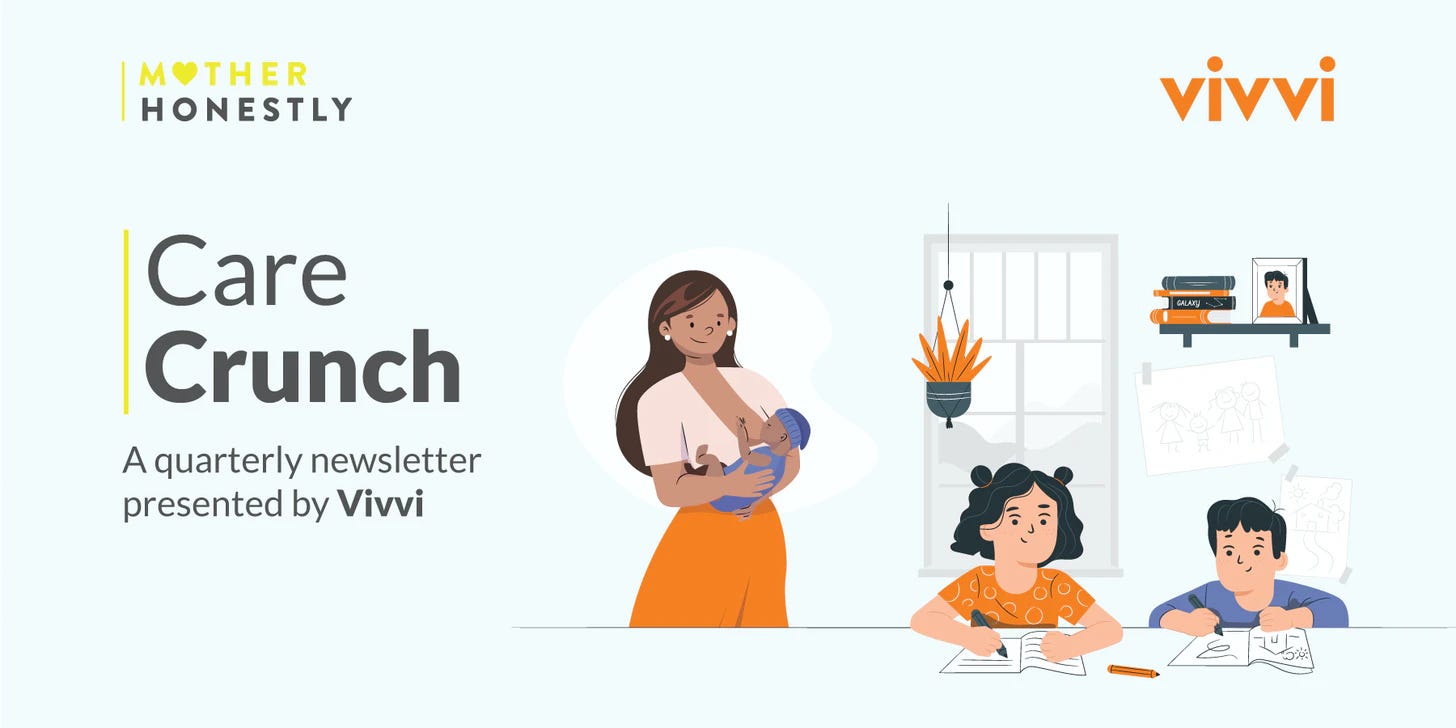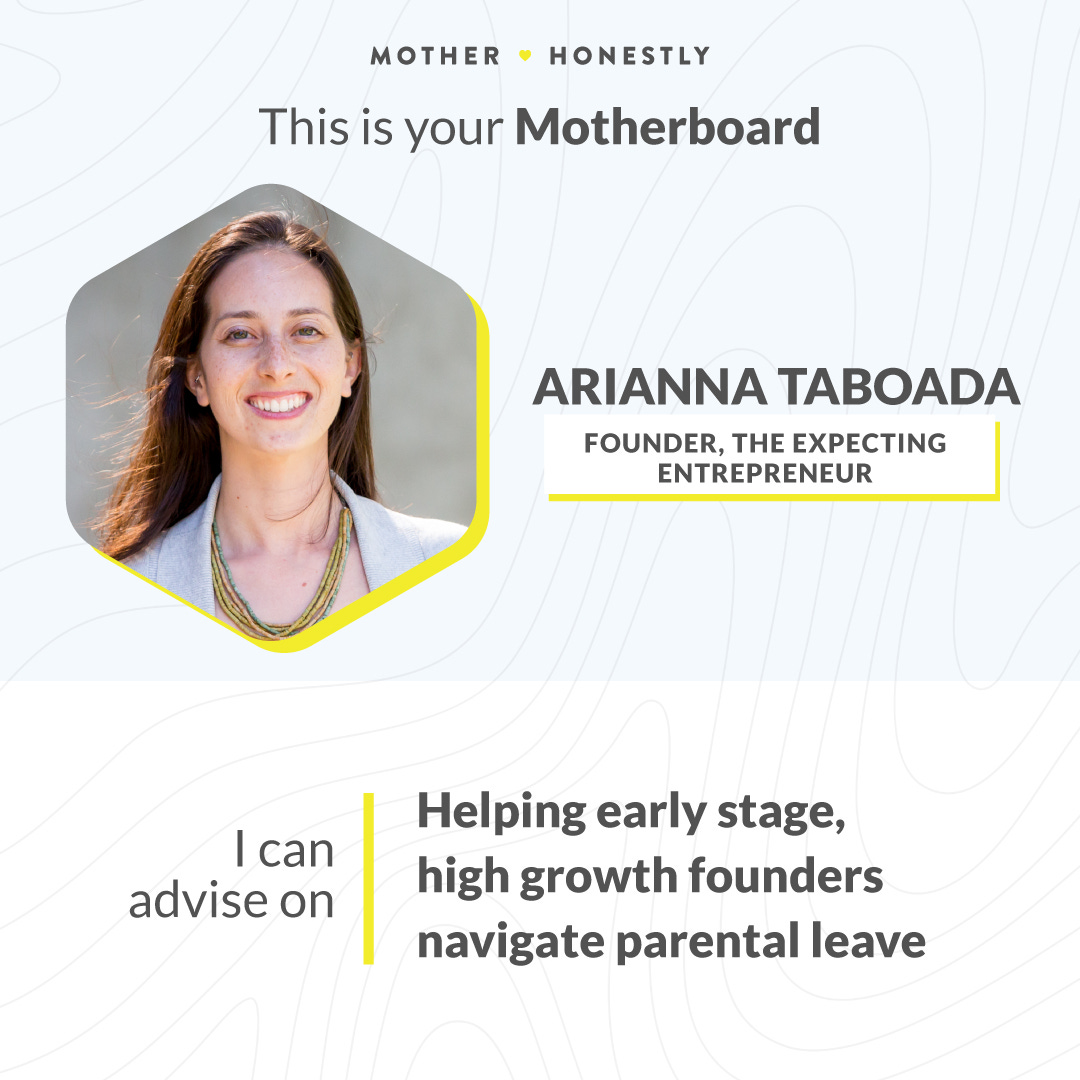Care Crunch: Parenting Can be a Workplace Liability. Let's Change That
We shouldn't have to hide our caregiving credentials, because they make us better employees.
It’s back-to-school season, which means working parents everywhere are navigating a number of new logistical and emotional hurdles. For those of us with young kids, our weekends and evenings are consumed with mapping out and executing a plan to get our kids safely and happily to school, on time, with minimal drama. To ace this complex operation, we must be organized, efficient, calm and capable problem-solvers.
These are skills any employer should appreciate.
Yet many don’t.
Despite a plethora of evidence proving that working parents are more productive, caregiving employees continue to face penalties in the workplace, including lower pay, hiring discrimination and bias. While the pandemic has ushered in an era of remote work, previous studies show that employees who take advantage of family-friendly benefits, such as paid leave and flexible scheduling, are seen as less competent and capable.
That’s why many employees hide our caregiving duties, even though parenthood confers a range of new skills. We become careful planners, master multitaskers, and expert negotiators, but we don’t brag about our new (or newly honed) abilities, because of a justified fear of discrimination.
Thankfully, that’s slowly changing. Prompted in part by the pandemic, more and more parents are proudly acknowledging their caregiving responsibilities, and more and more companies are recognizing that parent employees are keepers. Many employers are now offering benefits—such as subsidized child care—to keep caregiving employees on board and engaged. There are other signs a cultural shift is underway, too: LinkedIn users can now add "Stay-at-Home Mom," "Stay-at-Home Dad," or "Stay-at-Home Parent" to their list of job titles. Slack introduced a set of emojis so remote workers can acknowledge their family duties in their status. Talking about our domestic duties is less of a taboo.
Although time will tell how working parents ultimately fare in the wake of the covid crisis, these small signs point to a future where parents can proudly embrace that title. In the meantime, we chatted with Charles Bonello, the CEO and Co-Founder of Vivvi, to find out how parents can prove our prowess at work:
The Fix: How to Harness Your Parent Skills in the Workplace
By Charles Bonello, CEO & Co-Founder, Vivvi
Parenting is the ultimate resume-builder; you’re dealing with hard-to-please little clients, demanding deadlines and challenging tasks that last from the moment you wake up until well past bedtime.
And yet, many working parents still perceive caregiving as a liability in the workplace, and fear they’ll be judged as unreliable, uncommitted or unengaged by non-parent colleagues or managers. They’re often reluctant to share about their parenting status at work, particularly when they encounter caregiving challenges. In fact, nearly a third of working parents don’t feel comfortable talking to their boss about their childcare needs, and 39% of those worry they could lose their jobs if they talked openly about those needs.
What parents could use in the workplace is more support—child care benefits, to start—and a more transparent culture of care in the workplace. We should be celebrating the skills we develop as parents and the value they add to our professional lives, instead of hiding them. Here’s how to harness your parent skills in the workplace:
Recognize the professional strengths you gain as a parent. Did you coerce your toddler out the door this morning? Congrats on those stellar negotiating skills! Break up an argument between siblings after dinner? You aced conflict resolution! This worksheet can help you figure out your own parent = workplace skills.
Put your parent skills to work… at work. September 16 is National Working Parents Day, so use it as an opportunity to add “I Parented” to your list of achievements, and test out the skill you aced by taking care of your toddler or teen…at work. Go get that raise, or convince your client to do the thing. Then celebrate the win; it can be a simple pat on the back, or a more public share on social media.
Advocate for yourself and other parents. Change the workplace narrative by calling out anti-parent comments or insinuations and actively acknowledging the great work of parents on your team. You’ll not only engender loyalty among the working parents at your company, but also inspire empathy from others who appreciate a culture of care.
Want to learn more about How to Harness Your Parent Skills in the Workplace? Register for Vivvi’s webinar on September 16 at 12 p.m. ET (National Working Parents Day!).
ATTEND OUR SUMMIT:
It's time to step into all that you are meant to be, flourishing at home and in the workplace.
Women are a crucial component of building a better future—but working families aren't getting the support they need at home or at work. Childcare costs are skyrocketing, women are shouldering a disproportionate share of domestic duties and too few employers are making the necessary changes to enable employed caregivers get ahead at work.
We will examine innovative and sustainable solutions that are giving us hope and identify what women and working families need from partners, employers and society at large. And finally, we will network, find community and look towards the future with hope as we navigate a rapidly changing landscape at home, in the workplace and in our society.
Join us November 4th in Brooklyn, New York. Tickets are now available!
GET 1-ON-1 ADVICE:
Arianna Taboada, MSW, MSPH, is the founder of The Expecting Entrepreneur, a strategic advisory firm focused on parental leave planning for entrepreneurs and founders. Arianna speaks and writes about parental leave and respectful maternity care as an issue of social justice, human rights and economic equity, and she is the author of The Expecting Entrepreneur: A Guide to Parental Leave Planning for Self Employed Business Owners. Book Arianna today!
LOVE TO SEE IT
Women managers are more likely to pay employees fairly, according to a study by researchers at the Karlsruhe Institute of Technology in Germany. When given the task of deciding how much to compensate workers for a set task, both men and women managers opted to enrich themselves by paying lower wages, but women awarded about 13% more than managers on average, Bloomberg reports.
California companies with 15 or more employees may soon have to include the hourly rate or salary range on job listings. That’s because the state legislature passed a pay transparency law, aimed at closing racial and gender wage gaps, CNBC reports.
HATE TO SEE IT
Single moms have significantly less money than single, child-free women and men. Single women without kids have an average of $65,000 in wealth in 2019, according to new research from the Federal Reserve Bank of St. Louis. Single, child-free men have $57,000, while single moms only have $7,000.








